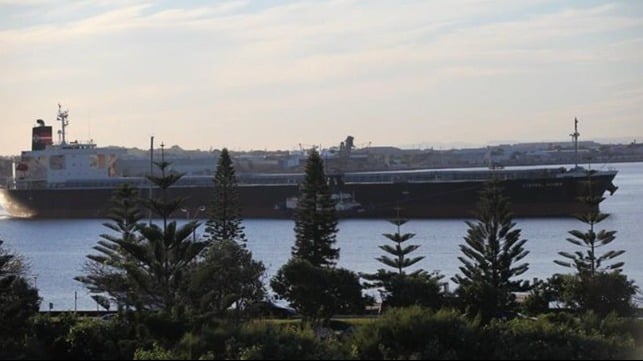Australia Bans Qatari Bulker for 18 Months Citing Appalling Conditions

The Australian Maritime Safety Authority announced an 18-month ban for a Qatari-owned bulker after releasing the vessel from a two-month detention. Calling conditions aboard the bulk carrier “appalling,” AMSA cautioned all vessel owners and operators that it has “zero-tolerance for sub-standard ships operating in Australian waters.”
The long-running detention drew international attention and required the support of everyone ranging from the Australian mining industry to the maritime unions, port officials, the class society, and flag state, as well as the safety inspectors to provide for the welfare of the crew. The International Transport Workers Federation and the Master Mariners of Australia had been calling for AMSA to take harsh actions. AMSA responded saying it was focusing on resolving the issues, and then it would take action. Today, it handed down one of the longest bans ever invoked on a ship.
“A banning constitutes more than just a disruption to shipping schedules, it comes at great financial and reputational loss to the companies associated with these ships,” said AMSA Deputy Chief Executive Officer, Sachi Wimmer. “Ship operators like Aswan Shipping are not welcome in Australian waters.”
Australia’s concerns were first raised in mid-February when a Panama-flagged bulk carrier named the Maryam (46,750 dwt) arrived in New South Wales. Owned by a Qatari company, Aswan Shipping, AMSA inspectors found serious deficiencies related to equipment maintenance, working and living conditions, and the vessel was ordered detained. The Maryam remains under detention for nearly 10 weeks while AMSA continues to work with all the parties involved to resolve outstanding issues.
The newly announced ban, however, was applied to a second ship of the Aswan Shipping company that arrived in Australia two weeks after the first ship. The Movers 3 (91,765 dwt) was detained on March 4 by AMSA inspectors for failing to carry out periodic surveys and for “appalling working and living conditions onboard.” AMSA reported that the vessel’s operator had failed to carry out six periodic surveys to confirm compliance with safety and operational standards as well as a defective freezer room that resulted in “unsafe and insufficient food stores for crew and dwindling freshwater supplies.”
During March while the vessel remained detained, Rio Tinto operator of the mine and port where the vessel had arrived to load cargo, stepped in and provided sufficient provisions while AMSA says Aswan Shipping failed to act. The ITF also became involved. The freshwater equipment was working to provide water but the ship’s cook resigned for personal reasons and asked for repatriation. The ship’s steward stepped in to replace the cook. Later a second crew member also resigned requesting repatriation. Mental health support was also provided to the crew during the long detention.
When the classification society inspected the ship on behalf of the flag state of Panama, they also identified issues related to the crew contracts and documentation of work onboard. They also found that a “poorly maintained ballast tank head vent” needed replacement.

that matters most
Get the latest maritime news delivered to your inbox daily.
“Aswan Shipping’s neglect has resulted in a difficult two months for the seafarers on Movers 3, let alone the effort required by many organizations to support them during this time,” said Wimmer. “We are holding Aswan Shipping accountable, it needs to step up and fulfill its obligations as a shipowner and operate responsibly if it wants to trade in Australian ports in the future.”
AMSA inspectors were satisfied that all the conditions had been resolved and released the vessel from detention on April 29. They also immediately issued a ban, prohibiting the Movers 3 from entering an Australian port for 18 months.
